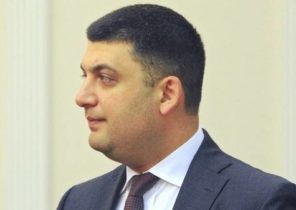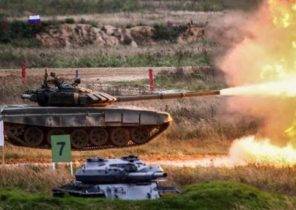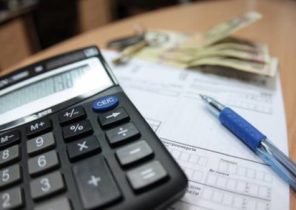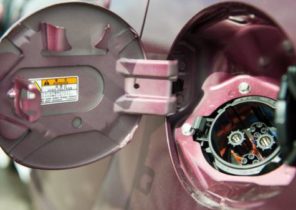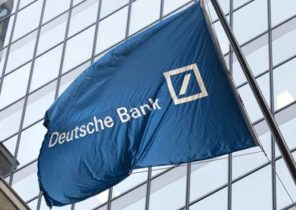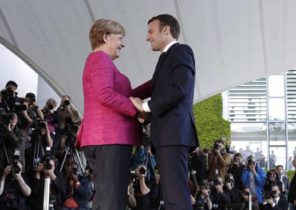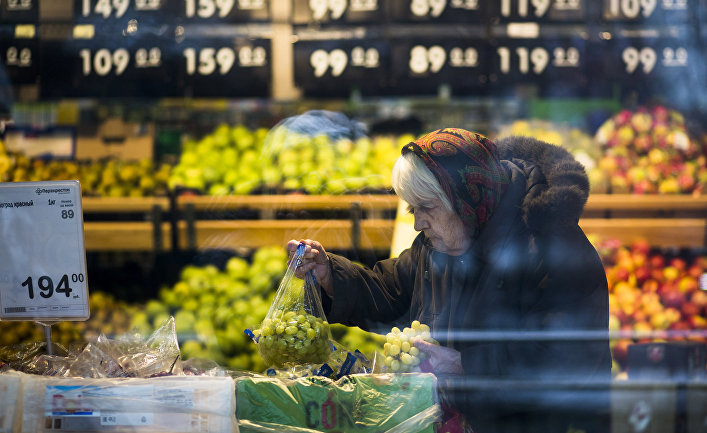
If judged by GDP, the Russian economy starts to grow. In 2015, GDP fell by 3.7%, and in 2016, apparently only 0.5%. This year, the GDP may show a slight increase. The Russians are not going to rebel because of their own economic situation. It seems that Russian society is spreading apathy.
According to many, in 2016, as Russia strengthened its international position. However, it has not always been an active participant in events. For example, the Russian Federation had not participated directly in Breccia and election trump (but who knows). Nevertheless, the geopolitical situation, at least from today’s perspective, developing for Russia favorably. But how is the situation in the Russian economy? To support this area of the success on the international stage?
If we talk about the overall economic indicators, i.e. gross domestic product (GDP), it seems that the Russian economic situation starts to improve. In 2015, GDP fell by 3.7%, and last year the Russian economy has stabilized, and the decline may be only half a percent. As for the current year, GDP could even show a small increase. Thus, the European Bank for reconstruction and development (EBRD) expects growth of 1.2%. The tipping point may come in the first months of this year.
Foreign investment, inflation and exchange rate
The same things in the Russian industry: during the first three quarters of 2016, the growth there was 0.4%. Revived and the financial flows between Russia and foreign countries. Gradually stopped large-scale private capital outflows and the fall in Russia again began to receive foreign direct investment. For example, IKEA wants to invest in Russia $ 1.6 billion, part of which will go to production (of new shopping centers in Russia and so enough).
But foreign direct investment is still not reached and half of those that were before 2013, and it is unknown whether they will continue the growth. The Russian Minister of Finance Anton Siluanov recognized that in regard to profits, Russia still remains for investors in risky region. Ambiguous estimates of inflation. On the one hand it’s good that prices are rising and wages slightly less worthless. So in 2016, the price level, estimated to have increased by only four percent (against 15.5% in 2015). On the other hand, the Ministry of economy is concerned, is not whether inflation is too low. Its further fall may be due to low demand, but for Russians it is not desirable.
The mood of the Russians in the new year will also improve the fall in the exchange rate (about 60 rubles to the dollar), which were last so a year and a half ago. Due to this, foreign goods become more affordable. The Russian currency strengthened thanks to the agreement of the Organization of countries-exporters of oil (OPEC) and Russia on the reduction of oil production, stable interest rates (the Central Bank of Russia wants to hold them until the second quarter of 2017) and referred to the foreign investment because of the cheap ruble.
The ruble also strengthened the traditional the December factor is that export companies pay part of their taxes and buy rubles. To this was added the sale of part of the oil giant “Rosneft” (albeit in euros, but revenue will be transferred to the state in rubles). However, this year the impact of these factors gradually weakened, and the ruble may again be cheaper.
Fear of scarcity
But how is life for ordinary Russians and how they feel in the current situation? The vast majority of the Russian population (80% according to polls “Levada-Center” held in early fall) understands that the Russian economy is not in the best position. It is 19% higher than two years ago. Two-thirds of respondents expect the crisis will continue for at least the entire current year. 25% even predicts “very long” crisis. Almost one in five have experienced delays in salary payment, and the same number of people predicted this problem in the coming months.
Real wages in Russia continue to decline. Net pension in November fell compared with the previous year by 5.6%. The majority of Russians is afraid of not only low incomes or job loss, how many shortages of goods in stores. Moreover, this fear generally increases, and this is strange in light of the claims of Russian leaders that the economy has adapted to the Western sanctions and Russian retaliatory measures, which affected the import of Western food. The economy may have adapted, but the Russians — no.
In the current crisis until unemployment has increased: in 2016, its level ranged between five and six percent. This three reasons. The first is that the effects of the crisis manifest themselves gradually, and while Russian firms do not go bankrupt. The second reason: the companies are likely to downsize, as so can incur penalties from the state that unemployment is not needed. Therefore, unnecessary employees prefer not to fire and to reduce the working time or salary. Often they are just left to mess around. The third reason lies in the fact that makes itself known demographic failure 90-ies and in the labour market are not so many new applicants.
Popular army
According to the research of public opinion, while the Russians are not going to rebel. According to the September survey, “Levada-Center”, 82% of respondents not willing to participate in demonstrations with the economic subjects (responses, however, can be distorted if the Respondent does not believe in anonymity). The popularity of President Vladimir Putin remains at 75%. But other political institutions less popular. All the smaller trusted media, the Church and trade unions.
In addition to the new Tsar Putin, a large, even growing, popularity of army only. This can be explained gradually spreading in the Russian society is apathy. Nobody trusts only Putin, who in the eyes of many Russians has literally mystical status of the defender of Russia and problems of routine life, in contrast to the incompetent Ministers and advisers not to blame.
No one wants to publicly Express the opinion that affected the low turnout at the September parliamentary elections, which, according to official data, came only 48% of voters. In fact, they could be even less. At the same time in 2011, the turnout was 60%. But it is not because the Russians are happy with the situation, they have no problems and they are not afraid of future developments. On the question of whether Russian society, the conflict potential in the relations of rich and poor, 78% of respondents responded positively (38% “absolutely sure”, 40% believed that “probably Yes”). According to 54% of the possible ethnic conflict.
The increased international isolation
In addition to the spread of apathy, which hardly will help to cope with economic problems, some experts fear the degradation of human capital. So, Natalia Zubarevich, Professor of the Moscow state University, notes that one of the negative consequences of a prolonged economic crisis, paradoxically, is that the Russians are getting used to it. And if so, it means that they are tightening their belts: cutting back on food, education and health (by the way, the Russian state budget copies this order). Seaside holiday cottage replaces.
The disadvantages of the situation can be ranked and the international isolation of the Russian society, especially from the West, therefore, Russia is likely to lose touch with full of innovation environment. However, this isolation is not only the result of the weak economy, but also political decisions. For example, the Kremlin allegedly recommended that the officials not to send their children to study abroad. Long-term human capital under the threat. However, growing international isolation does not bother the Russians: according to the survey, only 29% concerned about this problem. However, in the fall of 2015, there were 36%.
However, the Russians want to improve relations with the West (in November of this idea pooderzhivaet 70%, while a year and a half ago wanted only 50%). In addition, under the influence of state propaganda people are afraid of the NATO aggression (57%). Similar surveys should be interpreted with caution, and not always easy to tell what ails a broad Russian soul. The opinions and desires often contradict each other, which, however, is not only with the Russians. Perhaps they want the settlement of the strained relations with the West, especially if it means establishing equal relations with the United States. But the citizens of Russia came to terms with the isolation and perhaps even welcome it, seeing it as an opportunity to build a better Russia, is not spoiled by Western influences.
Propaganda
Andrey Arkhangelsky, leading at the state and Pro-Kremlin radio station and editor of the cultural magazine “Ogonek”, the Russian noted the jubilation caused by the election of Donald trump and the fact that he probably would punish not only the anti-Russian part of the United States, but also Europe. The Russians believe that the West provoked the collapse of the Soviet Union, and are pleased that the West in its own way is falling apart.
Propaganda extols the “simple” Western citizens who voted for Pexit and trump, and in France may choose a Pro-Russian, françois Fillon. Voters in the West saw through their elites and their lies about democracy and their opinions closer to Russia, which becomes a beacon of truth, having survived the Soviet collapse and the seeming humiliation in the 90-ies. Ordinary Russians like to think so. The problem, according to Arkhangelsk, is that the Russians will “celebrate imaginary victory over the West”, and it would weaken the need for change within the country, eliminating the ability to copy the “Western strategy” based on democracy and market principles. The trend of stagnation will only intensify.
Economic problems still bother some Russians, but their protests are never reported national media, which foreign observers watching in the first place. Sean Guillory, who is involved in the blog Sean’s Russia Blog wrote, for example, about the August protest March in Krasnodar “decent farmers” to Moscow. However, a protest March was stopped by the police.
Guillory said that farmers supported drivers-truckers who went on strike a year ago because of the new tolls. This incident, as well as their support to striking miners in the mine Gukovo near the southern Rostov, Guillory considers evidence of the growing solidarity of the protesters, which also create the new organization. For example, the truck drivers founded the Association of carriers of Russia.
The lessons of history
Government reacted to the protests with extreme irritation. Agents of the Main Department for combating extremism of the interior Ministry, which, among other things, must fight terrorism, arrest the organizers of the protests, but the courts designate for participation in unauthorized actions punishment in the form of imprisonment for up to ten days. Intelligence Agency, the FSB conducts searches in the homes of the farmers, and the tax authorities put pressure on relatives of rebels.
This broadcast and national media, which with great difficulty can be called a stronghold of opposition to the current regime. For example, gazeta. EN wrote about too hard actions of state bodies and that the protests of “ordinary people” are considered “dangerous and almost state”. Similarly, a fairly liberal “Vedomosti” wrote that the repressive laws adopted to combat the opposition Bolotnaya square (where the protests turned against the results of parliamentary elections in 2011), with a disgruntled city dwellers and Bohemians now apply to ordinary people.
Modern Russia’s leaders remember the lessons of history and understand that the rapture of the population, such as success in foreign policy, can quickly be replaced by criticism of the modern orders of magnitude. This confirmed the initial Russian enthusiasm generated by entry into the First world war, followed by the sobering, and the outcome known to us. A short “postkrymsky” consensus slaboda when the economy is completely offset by the newfound national pride associated with the extension of the Russian world, can end.
Economic plan
Russian politicians are happy that the economy has bottomed out and is beginning to stabilize. President Putin said that the economy has stabilized, “we”, i.e. the state. This statement is at least debatable: it helped, first of all, the devaluation of the ruble, and positive Outlook contributed to the growth of oil prices. However, some believed that the Russian economy still had far to fall. And the only thing that, perhaps, helped to a large extent, was an embargo on the import of Western food products, which gave a start to the healing process in Russian agriculture (even at the expense of growth in food prices and inflation). Russian politicians are also talking about the substitution of foreign goods with domestic production.
But economists of the Russian Academy of national economy Institute. Gaidar and the Russian Academy of foreign trade wrote in their November survey that the process of import substitution has stopped, and short-term success of 2015 could not be sustained. Partly because the benefits associated with a weak ruble and sanctions “was not accompanied by changes in the economy, which would lay the basis for long lasting stable growth.” In addition, the potential for substitution, according to experts, from the very beginning was small, that is, Russia is simply little to produce, and we should talk not about “recovery” in industrial production, and its “(re)formation”.
Russian politicians see the structural problems of the Russian economy, and yet inevitably there is a feeling of deja vu. Putin instructed the Russian government no later than may prepare economic plan, which aims at accelerating the pace of Russia’s economic growth in 2019 — 2020 and ahead of global economic growth, which, according to the International monetary Fund, in 2020 will grow by 3.8%.
Prime Minister Dmitry Medvedev reiterated another mantra of the Russian economic thinkers: we need to change the structure of the economy, that is, to get rid of dependence on the export of raw materials. First Deputy Prime Minister Igor Shuvalov charitable intentions said, noting that after 2020, the Russian government is supposed to function normally at a price of $ 40 per barrel, but it has been said previously.
Little hope
All goes to that soon Russia will get a new economic strategy. Certainly, before the election in 2018, Vladimir Putin would be happy to demonstrate that the fate of the Russian economy he was not indifferent. However, a great future, he connects with a pragmatic 2020-that is, the time after the election. Before him two options: either once in 2000 for the fourth, the economic program, which will be based on market principles, and which prepares the former for many years a Minister of Finance, and now again the “government” economist, liberal Alexei Kudrin, new etaticheskogo plan.
It is prepared by economists and politicians, United in the so-called Stolypin club, which relies on flooding the economy with public funds (first, Russia needs them to borrow), as well as quantitative easing of the Central Bank. Critics note that the result will be high inflation because the problem of Russia is not so much the lack of money for investments, but in the unwillingness and inability to invest not only for financial but for other reasons. Also the calculation is the fact that the Central Bank will return to the control of the exchange rate of the ruble.
The plan also includes improving the business climate, reform justice and reduce the tax burden on the enterprise from the current 49% to 41%. However, the plan does not solve one fundamental problem of the Russian economy — an important role of the state in it. Let’s see which option will choose Putin. Anyway hope for real change, not just for the adoption but also the implementation of market economic program, little.
Factor in oil prices
2016 brought Russia success in the international arena. The Kremlin was able to fill the vacuum that emerged after the West came out of the Syrian conflict, to save his vassal Assad to normalize relations with Turkey. At the same time because of Brexia weakened hateful the European Union and in the United States came to power, President trump, who is still very friendly attitude towards the current Russian leadership. Furthermore, even if Putin did not influence the results of the American elections, the very fact that Russian hackers have become an integral part of the American election campaign, and Putin himself hovering above them as the Almighty Ghost, of course, pleased the Kremlin leader.
Relations with the United States and the events that occurred there this year, seriously influenced the Russian position in the world economy. These relations and how Russia compete with the United States, interested in the ordinary Russians so much that sometimes interest borders on obsession. The Russian official interpretation of some recent events is well described by the British publication The Economist. The war in Ukraine was provoked by US. Ukrainian economic collapse States to ignore same as in the 90s ignored the Russian collapse. US are jealous of Russian successes in sports, ballet and other fields, and therefore lead anti-doping campaign against Russian athletes. USA is literally omnipresent.
Putin may be concerned about energy policy trump. The Republican candidate does not hide that wants to support American energy producers, whether in the sphere of extraction of oil or gas, or coal. This can lead to an increase in the proportion of U.S. energy commodities on the world market, which will weaken Russia. An agreement on limiting oil production from the oil cartel OPEC is still not actually executed, and the pressure from American producers to lower prices may put a contract at risk. After all, if a Treaty will not be able to significantly increase oil prices, some parties may begin to doubt his sense and prefer to mine at the limit of their possibilities.
Russian economic growth and the revenue of the state budget is still very dependent on oil prices, and the return to cost below $ 40 per barrel would significantly reduce the Russian space. But prices around $ 50 per barrel for a long time is not enough: at this price do calculations in the Russian budget for 2016, but growth rates at end of the year was not enough. Under the threat can appear and the Russian reserve funds, and do not exclude further steps to save — this time in the army.
Now Russia can not keep up with the new wave of arms in the world. For the first time in 30 years she fell out of the top five countries with the largest military budget. Russia is in sixth place, and it is expected that in 2018 it will be already in the seventh position, when it will overtake France. Russia’s military budget is slightly more than that of Japan.
The new American President
Putin hopes that trump and his administration are less likely to insist on compliance with international agreements and, rather, focus on the spheres of influence and transactions “quid Pro quo” in which Russia is guided much better. Advantage Putin may be the fact that, apparently, trump’s enemy number one will be China, not Russia. In this triangle it can be useful as a good ally. However, it is unclear what Russia can offer to Trump in exchange for possible concessions.
There may be a number, and it will be interesting to see how Putin will be given preference. Knowing this, we may approach the answer to this question that’s important. If he’s more afraid of revolution at home, the priority will be the lifting of sanctions. But the weakening of NATO, the external enemy who unites Russian society, is unprofitable. Or Putin is confident in its position and first of all wants to expand Russia’s influence? Then he will achieve freedom of action in Ukraine.
The new American President also understands that a strong position of his country is largely based on an extensive network of allies. And if he is preparing for a trade war with China, will Russia be able to help him more than the EU? Will be satisfied with a Russian proposal trump, which Putin, like the fact that he is a strong leader, who uncompromisingly defends the interests of his country? Russia could also lose one of its strategic advantages. Because before that Moscow recognized the existing order only when it was convenient, and enjoyed the fact that other States are more or less adhered to different rules (it unties her hands).
What will turn a similar advantage with the arrival of trump, if the United States starts to behave the same way? The new American President and, above all, his attitude to Russia, remains a mystery, therefore, can happen anything, especially if the misunderstanding of the motives will remain on the Russian side. In the end, may occur and what Putin said, wanting to finish the dialogue with journalists last year: “Love can turn into hatred”. Let’s see how Putin will comment on his first direct encounter with the tramp and his big ego.

